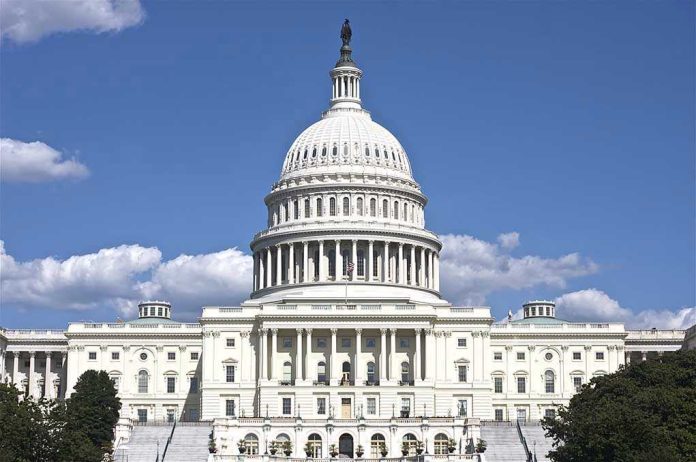
Imagine a world where a disgraced billionaire’s text messages reach directly into the halls of Congress—right as lawmakers grill the President’s former attorney on live television.
Story Snapshot
- Newly released documents reveal Jeffrey Epstein texting a sitting House Democrat during a major 2019 hearing.
- Messages included encouragement and advice as the Congresswoman questioned Trump’s ex-lawyer.
- Epstein’s communications raise serious questions about congressional independence and outside influence.
- The episode underscores the hidden power networks that can shadow even the most public political spectacles.
Epstein’s Digital Shadow in Congress
February 2019: The world watched as a House Democrat took the microphone to interrogate President Donald Trump’s former attorney. Unbeknownst to the public, Jeffrey Epstein—a financier with a criminal past and a Rolodex of global elites—was texting the Congresswoman in real time. Newly unsealed records show Epstein not only complimented her performance but also slipped in advice mid-questioning, inserting his presence into a hearing that was supposed to be about transparency and truth.
These messages went far beyond mere flattery. Epstein’s texts included strategic tips, suggesting lines of questioning and encouraging tougher stances. This direct line of communication between an infamous private citizen and an elected official during one of the most scrutinized hearings in recent memory raises uncomfortable questions. Who else outside the chamber had a say in the words spoken inside it? And what does it mean for American oversight when those with the most to lose—or gain—have a voice at the table, even if only by text?
Power, Influence, and the Problem of Access
Epstein’s involvement in the hearing, revealed only after his death, brings the issue of access into sharp relief. The American public expects open government—hearings, votes, and decisions to be made in the people’s interest. Yet, the Epstein episode starkly illustrates how private power brokers can insert themselves into the process, bypassing both rules and scrutiny. The Congresswoman’s willingness to engage with Epstein’s texts while performing her oversight role suggests a comfort, or perhaps even a dependency, on outside counsel that undermines the ideal of legislative independence.
Epstein’s notorious social connections have long been a matter of public speculation, but the directness of his messaging here is different. This was not a backroom meeting or a lobbyist’s lunch. It was an unfiltered, real-time pipeline into a historic congressional event, with Epstein leveraging his relationship to shape the public narrative. For readers who value transparency and accountability, the episode lands as a warning: even the most visible political theater can hide invisible influences.
The Unanswered Questions That Haunt the Hearing
The fallout from these revelations is only beginning. How many other hearings, votes, or statements have been shaped by private, untraceable messages? Was this an isolated incident, or just the tip of the iceberg? Congressional leaders, already dogged by questions of integrity and independence, must now contend with evidence that outside actors—some with deeply troubling histories—can and do reach into the heart of their proceedings.
American conservative values emphasize the importance of independent lawmaking, free from the pressure of unelected elites. The Epstein texts, regardless of the Congresswoman’s intentions, challenge the very foundation of that independence. They highlight the porous boundaries between public office and private influence, and they pose a blunt question to every citizen: If a billionaire with a criminal record can shape a congressional hearing from the shadows, how secure is our democracy from the unseen hands of power?
Sources:
Republicans fail to oust Plaskett from House Intel in shock vote




